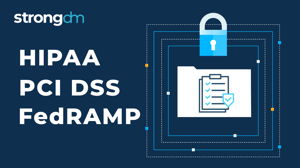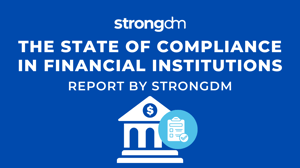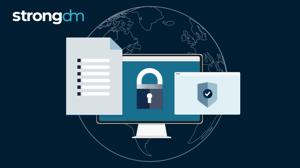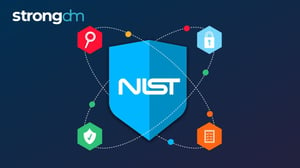What Is Continuous Compliance? Examples & How To Achieve It
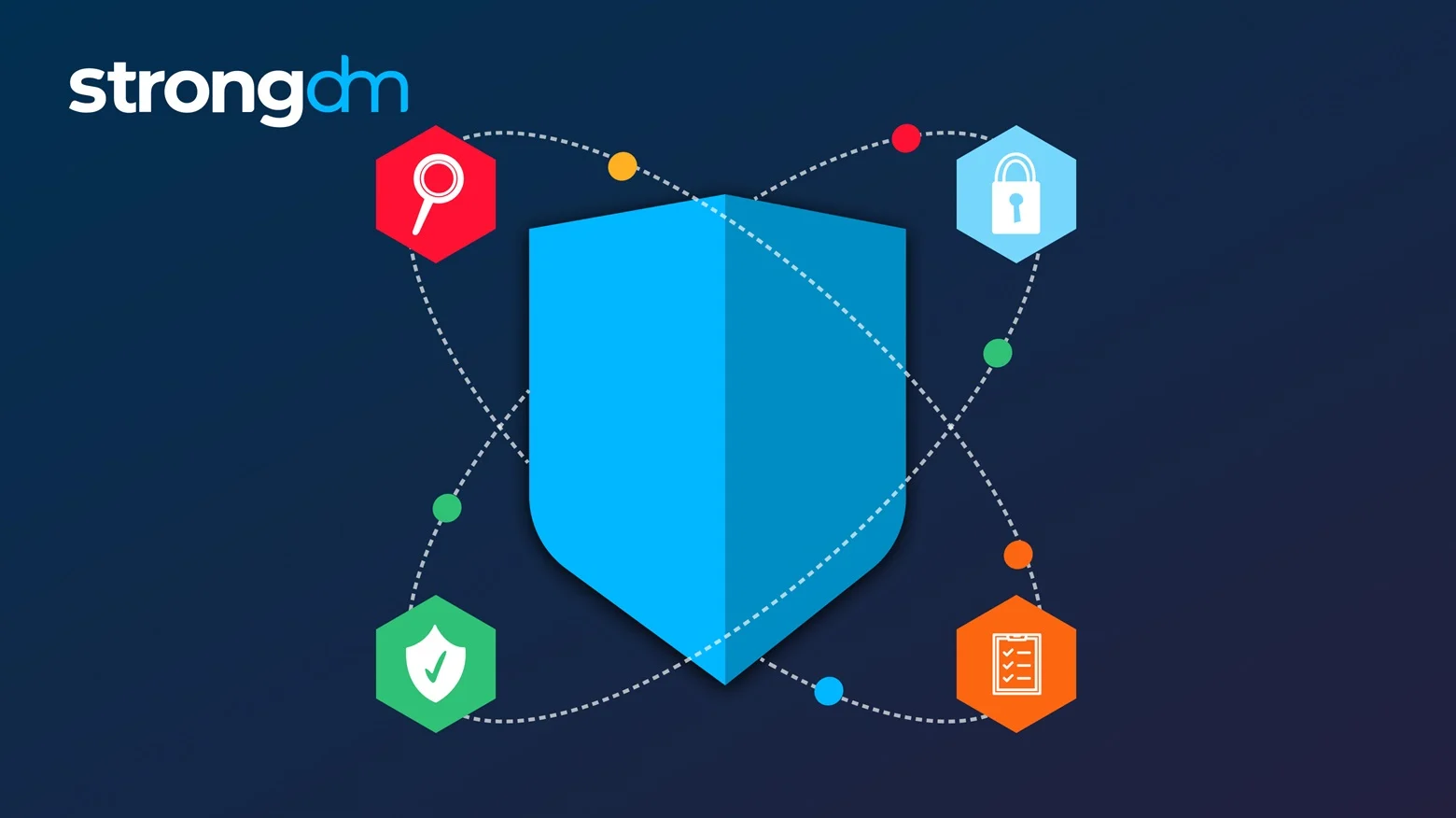
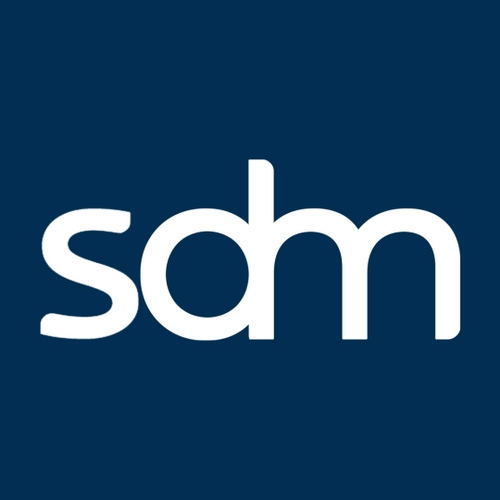
Written by
StrongDM TeamLast updated on:
May 31, 2024Reading time:
Contents
Built for Security. Loved by Devs.
- Free Trial — No Credit Card Needed
- Full Access to All Features
- Trusted by the Fortune 100, early startups, and everyone in between
With more organizations experiencing compliance breaches, establishing and maintaining a rigorous compliance discipline is a critical priority for enterprises. But compliance does not adhere to one-and-done or set-it-and-forget-it models. Organizations that are serious about their compliance efforts are adopting a continuous compliance approach, which provides them with a proactive, ongoing way to meet regulatory requirements and maintain security standards. This blog will explore what continuous compliance is, the challenges it poses, its benefits, and how organizations can achieve and maintain it.
What Is Continuous Compliance?
Continuous compliance is the ongoing process of ensuring that an organization consistently adheres to regulatory standards and internal policies for its systems, applications, employees, partners, and engagement with stakeholders. It involves continuous monitoring, auditing, and real-time updates of both technology and human behavior to maintain compliance with government and industry standards frameworks.
By operating in a continuous fashion, organizations gain a purview over all activity, which dramatically increases visibility into risks and ensures that the organization remains within legal and regulatory boundaries.
Unlike periodic compliance, which relies on intermittent checks, continuous compliance ensures that compliance is maintained in an always-on way through automated monitoring and reporting.
Importance of Continuous Compliance
Continuous compliance is essential because it helps organizations avoid costly fines, reputational damage, and operational disruptions. It ensures that security measures are always in place, reducing the risk of breaches and enhancing overall organizational security.
Additionally, in today's regulatory environment, organizations must comply with various standards, including HIPAA, SOC 2, SOX, ISO 27001, PCI, and more. Continuous compliance helps organizations stay up-to-date with these regulations and ensure that they meet all necessary requirements.
Key Components of Continuous Compliance
The key components of continuous compliance include:
- Real-Time Monitoring: Continuously tracking and analyzing security events. Learn more about StrongDM's Real-Time Monitoring Features.
- Automated Audit Logging and Reporting: Compliance teams need to be able to generate compliance reports automatically. Real-time logging of every access request and activity provides detailed logs that include who accessed what resource, when, and what actions they performed. This comprehensive logging is crucial for compliance with regulations that require detailed audit trails, such as PCI DSS.Check out StrongDM's Automated Reporting Capabilities.
- Real-Time Alerts and Notifications: Real-time alerts and notifications for suspicious activities or policy violations enable security teams to respond quickly to potential compliance issues.
- Granular Access Controls: Implementing granular access controls allows enterprises to enforce the principle of least privilege. Users are granted only the permissions necessary for their roles, reducing the risk of unauthorized access and helping meet compliance requirements such as GDPR and HIPAA. Explore StrongDM's Access Control Solutions.
- Automated Compliance Checks: Integration with compliance management tools automates the process of checking and enforcing compliance policies. This automation helps organizations maintain continuous compliance without manual intervention.
- Unified Access Management: Enterprise compliance teams need a single platform for managing access to databases, servers, Kubernetes clusters, and other infrastructure components ensures that access controls are consistently applied and easily auditable.
- Zero Trust Architecture: A Zero Trust approach ensures that all access requests are authenticated and authorized regardless of the user's location. This model aligns with modern compliance frameworks that emphasize the importance of secure, verified access.
- Dynamic Access Reviews: These facilitate periodic access reviews through easy-to-use interfaces for reviewing and certifying user access ensures that access rights remain appropriate over time, a key requirement for many compliance standards.
Challenges of Achieving Continuous Compliance
Manual Processes
Relying on manual processes for compliance can be error-prone and inefficient. Manual checks are often inconsistent and cannot keep pace with the dynamic nature of compliance requirements.
Complexity of Regulations
Regulations are complex and constantly evolving. Keeping up with these changes and ensuring compliance can be daunting for organizations without automated tools.
Resource Constraints
Many organizations face resource constraints, lacking the necessary expertise and personnel to manage compliance effectively.
Data Silos
Data silos can impede compliance efforts by making it difficult to access and analyze information across different departments.
Benefits of Continuous Compliance
Proactive Risk Management
Continuous compliance allows organizations to identify and mitigate risks proactively, preventing potential breaches before they occur. For strategies, read Proactive Risk Management Strategies.
Enhanced Security
By ensuring that security measures are always in place, continuous compliance enhances overall organizational security.
Operational Efficiency
Automated compliance processes reduce the time and effort required to maintain compliance, improving operational efficiency.
Audit Preparedness
Continuous compliance simplifies audit processes by ensuring that all necessary documentation and reports are readily available.
How StrongDM Facilitates Continuous Compliance Automation
Automation is a cornerstone of continuous compliance, and leveraging the right tools can make a significant difference in achieving and maintaining compliance. StrongDM offers a powerful solution for automating various aspects of continuous compliance, ensuring your organization stays ahead of regulatory requirements and security standards.
Simplified Access Management
StrongDM simplifies access management by providing a centralized platform to control and monitor access to your infrastructure. Automated access controls ensure that only authorized personnel can access sensitive systems and data, reducing the risk of unauthorized access and potential compliance violations.
Real-Time Activity Monitoring
With StrongDM, you can achieve real-time monitoring of all user activity across your infrastructure. The platform logs every command, query, and action, providing a comprehensive audit trail that is crucial for compliance. This real-time visibility allows you to quickly detect and respond to suspicious activities, ensuring continuous adherence to compliance standards.
Automated Reporting and Auditing
StrongDM automates the generation of detailed compliance reports and audit logs. These reports can be customized to meet specific regulatory requirements, making it easier to demonstrate compliance to auditors and regulators. Automated reporting saves time and resources, allowing your compliance team to focus on strategic initiatives rather than manual data collection and report generation.
Granular Policy Enforcement
StrongDM enables granular policy enforcement through its robust policy management features. You can define and enforce policies that align with regulatory requirements and best practices, such as least privilege access, multi-factor authentication (MFA), and session recording. Automated enforcement of these policies ensures consistent compliance across your organization.
Integration with Existing Tools
StrongDM integrates seamlessly with your existing security and compliance tools, enhancing their capabilities and ensuring a cohesive compliance strategy. This integration allows for the automated flow of data between systems, reducing the complexity of managing multiple tools and ensuring a unified approach to continuous compliance.
Continuous Improvement and Adaptation
StrongDM supports continuous improvement and adaptation by providing insights and analytics that help you identify areas for improvement in your compliance strategy. The platform’s automated features allow for quick adjustments and enhancements, ensuring that your compliance program evolves to meet changing regulatory requirements and business needs.
User-Friendly Interface
StrongDM’s user-friendly interface makes it easy for your team to manage compliance tasks and monitor activities. The intuitive dashboard provides real-time insights into your compliance posture, allowing for quick decision-making and proactive management of compliance risks.
Continuous Compliance Examples (Use Cases)
Olive
Olive is a healthcare automation company that leveraged StrongDM to achieve continuous compliance. By implementing StrongDM, Olive was able to automate access management and ensure compliance with healthcare regulations such as HIPAA. StrongDM’s real-time monitoring and automated reporting capabilities allowed Olive to maintain continuous compliance effortlessly.

Coveo
Coveo, a leader in AI-powered search and recommendations, used StrongDM to streamline its compliance processes. By integrating StrongDM, Coveo could manage access control across its complex infrastructure, ensuring compliance with GDPR and other data protection regulations. StrongDM’s comprehensive audit trails provided Coveo with the necessary documentation for compliance audits.
Benevity
Benevity, a social impact software provider, utilized StrongDM to enhance its compliance posture. StrongDM’s robust access control and automated reporting features helped Benevity meet the stringent requirements of various compliance standards, including SOC 2. The continuous monitoring capabilities of StrongDM ensured that Benevity could proactively manage and mitigate compliance risks.
Steps to Implement Continuous Compliance with StrongDM
- Assess Current Compliance Posture
- Conduct a thorough assessment of your current compliance status. Identify gaps and areas for improvement.
- Define Compliance Requirements
- Define the specific compliance requirements for your organization based on the relevant regulations and standards.
- Implement StrongDM
- Integration: Integrate StrongDM with your existing systems and applications.
- Configuration: Configure StrongDM for compliance monitoring and reporting.
- Training: Train your staff on how to use StrongDM effectively.
- Monitor and Review
- Continuously monitor compliance status and review processes regularly to ensure ongoing compliance.
- Audit and Adjust
- Use audit results to make necessary adjustments to your compliance processes. Regularly update policies and procedures to reflect regulatory changes.
Best Practices for Continuous Compliance
Regular Updates
Stay up-to-date with regulatory changes and update your compliance processes accordingly.
Cross-Department Collaboration
Foster collaboration across departments to ensure comprehensive compliance efforts.
Employee Training
Regularly train employees on compliance requirements and best practices.
Documentation
Maintain thorough documentation of all compliance efforts, including policies, procedures, and audit results.
Conclusion
Continuous compliance is essential for maintaining security and meeting regulatory requirements. By leveraging StrongDM, organizations can simplify and automate compliance processes, ensuring that they stay compliant at all times. Contact StrongDM today for a demo and see how it can help your organization achieve continuous compliance.
Continuous Compliance FAQs
What is the approach to maintaining continuous compliance?
The approach to maintaining continuous compliance involves implementing real-time monitoring and automated reporting systems, such as those offered by StrongDM. It also includes regular updates to compliance policies, cross-department collaboration, employee training, and thorough documentation of compliance efforts.
What is continuous compliance in DevOps?
Continuous compliance in DevOps integrates compliance checks into the continuous integration/continuous deployment (CI/CD) pipeline. This ensures that compliance is maintained throughout the development lifecycle, from code development to deployment. Tools like StrongDM can help automate these compliance checks, making it easier for DevOps teams to stay compliant.
What is continuous monitoring in compliance?
Continuous monitoring in compliance involves the ongoing tracking and analysis of security events to ensure that compliance standards are consistently met. This includes monitoring user activities, access controls, and system configurations. StrongDM's real-time monitoring features can help organizations achieve continuous monitoring in compliance.
Is compliance an ongoing process?
Yes, compliance is an ongoing process. Regulations and standards are constantly evolving, and organizations must continuously monitor and update their compliance practices to stay compliant. Implementing tools like StrongDM can help streamline and automate this ongoing process.
Next Steps
StrongDM unifies access management across databases, servers, clusters, and more—for IT, security, and DevOps teams.
- Learn how StrongDM works
- Book a personalized demo
- Start your free StrongDM trial
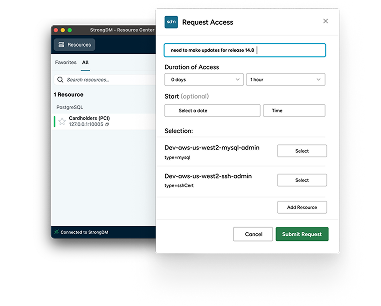
Categories:

About the Author
StrongDM Team, Universal Privileged Access Authorization (UPAA), the StrongDM team is building and delivering a Zero Trust Privileged Access Management (PAM), which delivers unparalleled precision in dynamic privileged action control for any type of infrastructure. The frustration-free access stops unsanctioned actions while ensuring continuous compliance.
You May Also Like
